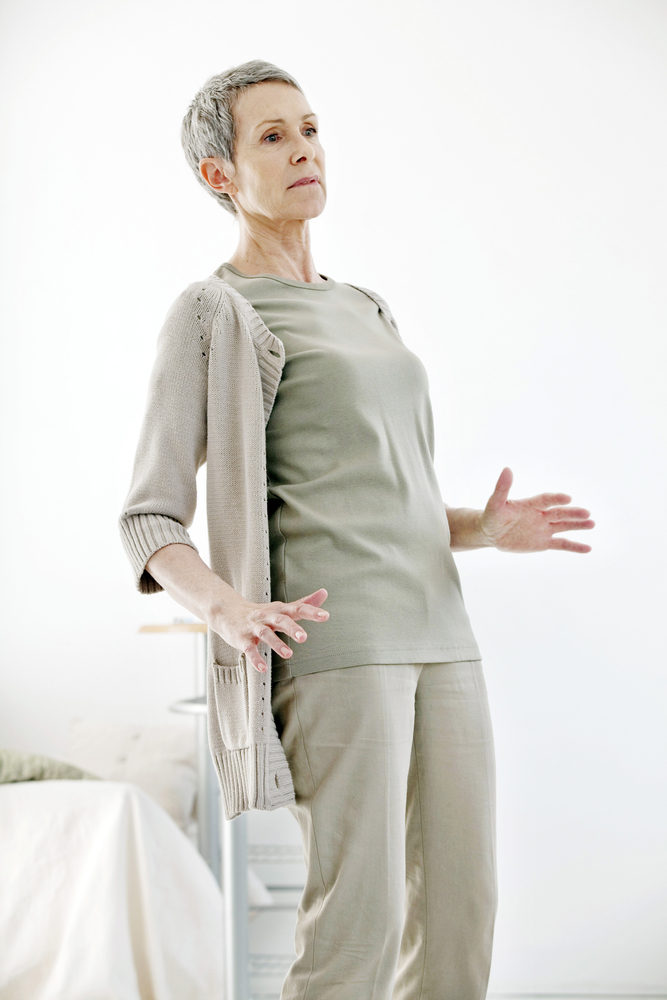
Maintaining good balance requires the healthy interaction of the eyes, the spatial sense of the legs and feet, and the vestibular system, or the balance system of the inner ear. One of the most subtle systems of the body, the vestibular system can be affected by a variety of conditions and diseases that affect the elderly. A compromised vestibular system produces disorientation, lightheadedness, dizziness, or mild to severe vertigo – all of which can impair balance. Falls are the leading cause of injuries, deaths, and hospital admissions for trauma in seniors, and every year 20% to 40% of adults over 65 who live at home experience a fall. The consequences of a fall can be serious, when up to two-thirds of seniors who fracture a hip die within a year. Caregivers whose loved ones suffer from a variety of conditions, including: inner ear disorders, low blood sugar, anxiety attacks, low or high blood pressure, stroke, cardiac problems, medication interactions and even a poorly balanced diet should know the signs of vertigo.
Seniors with conditions that impair their vision, such as cataracts, glaucoma, diabetic retinopathy, and macular degeneration, are well aware that their balance is at risk and they take appropriate precautions at home and abroad in the world. Loved ones who use walkers, canes or the assistance of a homecare companion to move about their homes or in public are well aware that they must take care to preserve their balance and move carefully. But conditions that affect the inner ear system are more common causes of vertigo:
- Benign Paroxysmal Positional Vertigo, or BPPV, which occurs when tiny calcium particles called canaliths form clumps in the canals of the inner ear. The inner ear keeps your balance by sending signals to the brain about where the head and body are relative to gravity. BPPV occurs for no known reason, and can simply develop with age
- Meniere’s disease is an inner ear disorder possibly caused by the accumulation of fluid and changing pressure in the ear. It can cause tinnitus (ringing in the ears) and hearing loss along with vertigo
- Vestibular neuritis, or labyrinthitis, is an inner ear problem typically caused by viral infection. The infection inflames the inner ear around nerves that the body uses to sense balance, impacting performance.
Less often, vertigo can be caused by:
- Head or neck injuries
- Issues with the brain such as tumor or stroke
- Ear damage as a side effect of certain medications
- Uncommon symptom of migraine headaches
- Allergies, both airborne and food-related
Depending on the cause, vertigo can last for hours or days, and recur frequently or happen once and never again. The brain is versatile, or ‘plastic’, and is usually able to adapt to the changes to the inner ear, and maintain balance with other tools at its disposal. However, there are treatments available for longer-term cases of vertigo, such as:
- Vestibular rehabilitation, a kind of physical therapy that will strengthen the vestibular system so it will send the right signals to the brain about the location of the head and body relative to gravity. This is appropriate for patients who suffer recurring episodes of vertigo which impairs their ability to function.
- Canalith repositioning maneuvers, which is a series of head and body movements that guides the calcium deposits that cause BPPV out of the canal into an inner ear chamber for reabsorption.
- Medication can
- relieve the nausea or motion sickness that accompanies vertigo
- cure the infection inflaming the affected part of the inner ear
- reduce pressure from fluid build-up
- reduce your allergic response to the implicated allergens
- cure the sinus infection blocking the Eustachian tubes in the middle ear
- Surgery can remove a tumor, or resolve an injury to the brain or neck, which may be causing vertigo
The simple fact is that the number of nerve cells and overall blood flow to the inner ear decreases after age 55, and vestibular loss increases as we age. So the gradual loss of vestibular performance can result in balance problems, with or without vertigo. This can mean seniors have trouble walking on the soft, uneven surface of a thick carpet. Caregivers and homecare companions need to know the signs and symptoms of vertigo, dizziness and more subtle balance issues so that seniors stay safe and on their feet at home and at large.
